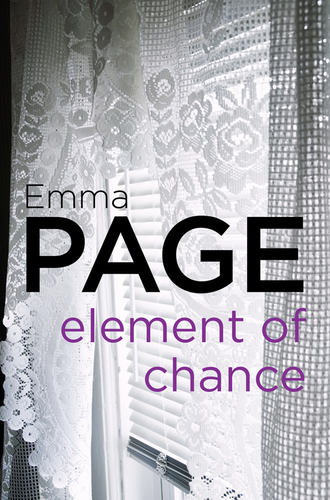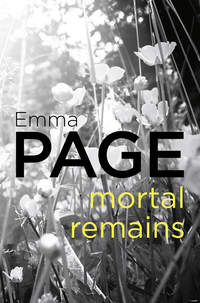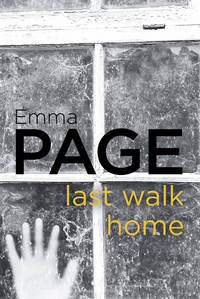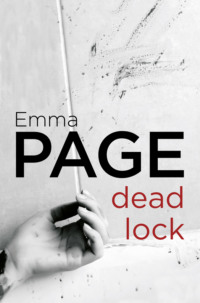
Полная версия
Element of Chance
Celia’s smile vanished. ‘That!’ she said brusquely. ‘I don’t know who started that particular hare but there’s nothing in it. I can assure you of that.’
‘It sounded a bit of a wild tale to me,’ Ford said lightly. Maybe you don’t want to know about it, he said to himself, could be you’d lose your job, whether it’s a merger or a take-over. Could be also, he added in his mind with a sudden sense of illumination, that it’s the reason why you’re closing in on Rolt. Time was going inexorably by, she wasn’t getting any younger. And of course she’d always been irremediably stuck on Rolt.
‘Kindly contradict the rumour if you should hear it again,’ Celia said with force. She walked away towards the stairs, she went rapidly up. He stood looking after her with amused approval. That one never knows when she’s beaten, he thought – and so of course she never will be beaten.
What was I about to do when I looked out of the window and saw Celia Brettell? he asked himself a moment later, staring up at the ceiling. Oh yes, he answered himself almost at once, I was going to collect Robin. He was just about to go upstairs when he heard a light patter of footsteps along the first-floor corridor and Mandy Webb came into view. He raised a hand, called out to her.
‘Miss Webb – you might trot along and winkle Robin out for me. Tell him to get a move on or we’ll be late for lunch.’ He turned away without waiting for any acknowledgement on Mandy’s part, and went off to get his coat.
It wouldn’t do Mr Ford any harm to polish up his manners, Mandy said resentfully to herself as she went reluctantly off to carry out his command.
She found Robin standing by the window in an empty office. He held a sheaf of papers in his hand, he was gazing down at the car park. He was a slimly built lad of medium height; he had short brown hair with all suggestion of curl sternly suppressed.
‘Your dad wants you,’ Mandy said without preamble. He turned and gave her a blank look. His face was long and pale, he had large grey-blue eyes.
She felt a sudden impatient touch of sympathy for him, imagining what it must be like to be blessed with a dad like his. ‘Lunchtime,’ she said in a more kindly fashion. ‘Your dad’s all set and raring to go. You’d better get off downstairs.’
Robin made a small jerky movement of his head. ‘Oh yes, thank you, I’ll go right away. Very kind of you to come and tell me.’
‘Don’t mention it,’ she said automatically. She paused on the threshold and looked back at him. She and Tessa might ask him along to one of their parties some time. He looked as if he could do with a bit of livening up. But she said nothing about it yet. She’d have to mention it to Tessa first.
It occurred to her as she went along the corridor to the cloakroom that it might also do her a bit of good with Mr Ford if she did a kindness to his one and only chick; it might sweeten old Ford’s disposition towards her, make him speak up for her perhaps in due course when promotions were being handed out. She bit her lip, considering the notion. Mm, bit of a long shot, but possibly worth a try.
CHAPTER 4
AN UNEXPECTED interview with a new client meant that it was one o’clock when Alison finally managed to get off to lunch. She was very hungry, she’d had nothing for breakfast but a cup of coffee and a slice of toast. She’d treat herself to a really good lunch, take her time over it. She might try that place by the old market, it prided itself on its grills.
She paused on her way out and put her head round the door of Hazel Ratcliff’s overheated little sanctum. Hazel scarcely ever went out for lunch; she brought a vast number of sandwiches and great slabs of cake from home.
‘I may be a little late back,’ Alison said. ‘I haven’t got an appointment till a quarter to three but you might take any messages that come for me.’
‘Yes, of course, Mrs Rolt,’ Hazel said without more than a brief upward glance. She had munched her way through the greater part of her lunch and was now engaged in crocheting a small square of tangerine-coloured wool. A little pile of completed squares in a variety of bright shades lay on a piece of white tissue paper well out of range of stray crumbs.
‘What lovely colours!’ Alison said. ‘Are you making something for the Fair?’ A Combined Charities Autumn Fair was being held in a few weeks’ time with the object of raising funds which would be distributed at Christmas among various worthy causes. Alison could hardly fail to be aware of the project, for which Hazel worked assiduously; several other members of the Kingfisher staff were either busy making an assortment of saleable objects or had promised to act as stallholders and general assistants on the day.
Alison had so far done nothing to help. She intended to call in at the Fair and patronize a few stalls; she felt that was all anyone had a right to expect of her. Now it occurred to her that an offer of help might be politic.
‘I’m making cushions,’ Hazel said in a slightly mollified tone. She reached into a zip-topped bag on the floor beside her. ‘This is one I’ve just finished.’ She held out a cushion about twelve inches square with a brilliant design of motifs in different colours arranged in a pattern of concentric oblongs.
‘That’s beautiful,’ Alison said without exaggeration. ‘Did you design it yourself?’
Hazel shook her head. ‘No, it’s one of my mother’s designs. She was very good at needlework.’ She was silent for a moment, then she spoke in a bracing tone. ‘We’re using three of her crochet designs, they’re all based on the same idea as this. Oblongs, squares and circles. And two gros point designs. Jacobean.’
‘I’d like to see one of those,’ Alison said. ‘I’ve always been fond of gros point work.’
‘I haven’t got one here to show you.’ Hazel pondered for a moment. ‘I wonder if Mr Yoxall has.’
‘Mr Yoxall?’ Alison said in surprise.
‘Yes.’ Hazel sounded mildly irritated. ‘He’s very good at gros point. A lot of men do embroidery.’
‘Yes, I suppose so.’
‘He’s making some cushions for the Fair. And he’s doing a lot to help generally.’ She fixed on Alison an eye full of accusation. ‘Everyone’s doing what they can.’
‘Yes,’ Alison said. ‘Actually I’d like to do something to help, if it’s not too late to offer. I find I’ve a little more free time just at present.’
‘Oh well,’ Hazel said, a fraction more warmly, ‘that’s good news. As a matter of fact we’re in a bit of a jam, the woman who was going to run the objets d’art stall has had to go up north to look after her grandchildren. Her daughter’s gone into hospital and it looks as if she’s going to be there for some time. Do you think you could take on the stall? I know nothing about art, but you ought to be good at it. You have the right artistic background.’ A reference to the fact that Alison’s father – a well-known figure in this part of the county in his day – had been a painter, creating precise, delicate landscapes in water colours.
‘Yes, I’m sure I could manage it,’ Alison said. Impossible now to refuse without plunging Hazel back into hostility. She became aware of the time. ‘I must go or I won’t get anything to eat.’
‘That’s settled then,’ Hazel said firmly. ‘To be absolutely in order of course we should have to get the agreement of the committee.’ A lively note entered her voice. ‘If you’re free this evening why not come along to the committee meeting? You’ll need to be given all the details about the stall. The meeting’s at half past seven.’
‘Yes, I can manage that,’ Alison said. ‘Where do the meetings take place?’ She knew the Fair was to be held in a church hall close to where she lived; she saw the gaily-painted posters twice a day when she passed the building.
‘The members take it in turns to hold the meetings in their own houses. This week it’s the chairman’s house. Or I should say the chairwoman.’
‘And who is the chairwoman?’ Alison asked.
‘Mrs Ford. Beryl Ford.’ Oh Lord, Alison thought, I don’t want to get mixed up with the Fords. She’d known Arthur Ford when she worked at CeeJay and during the two years her marriage had lasted; she had never greatly cared for him. ‘I imagine you know where Mrs Ford lives,’ Hazel added.
‘Yes, I believe so,’ Alison said casually. She had set foot in the house once or twice as a young junior at Ceejay.
There was really nothing she could do to wriggle out of it now. ‘Very well,’ she said briskly. ‘Mrs Ford’s house. Half past seven. I’ll be there.’
Beryl Ford was in the kitchen dishing up lunch when her husband and son reached home.
‘Chicken,’ Arthur Ford said as soon as the front door swung open at his key. He gave a second sniff. ‘And apple pie.’ Other men might go home on Mondays to an uninspiring lunch knocked up from yesterday’s remains – or not even be allowed home at all but provided with a packet of sandwiches or a nod towards the works canteen – but not Arthur Ford. Oh dear no. Beryl Ford knew better than to try that one on. Or at least she knew better now after twenty years of marriage. Some things she could get away with, some areas where she could wear the trousers, but as far as grub was concerned she knew from early and deeply-etched experience precisely where the limits of tolerance lay.
‘I’m not hungry,’ Robin said. He followed his father into the over-furnished dining room. Beryl came bustling in from the kitchen, carrying a tray. Her face was flushed, her brilliantly blonde hair was starting to slip from its moorings.
‘Here you are at last then,’ she said sharply. ‘Sit down.’ She began to slap food on to plates.
‘I don’t want very much,’ Robin said mildly. His mother dug the spoon into the casserole, didn’t bother to comment, piled up his plate and handed it to him. ‘Eat that,’ she commanded. ‘Put some flesh on your bones.’ He took the plate without protest and began to eat.
‘You were ten minutes late coming in today,’ Beryl said to her husband in a challenging tone. He made no reply but concentrated on the food. ‘Don’t be late again this evening,’ she said on a higher note. ‘I’ve got a committee meeting here tonight. The Charities Fair. I can’t be kept hanging about in the kitchen,’ Neither Arthur nor Robin gave any sign that they had heard what she said. She lobbed out her own helping and plonked her thin frame down on her chair. ‘I hope we find someone to take over the art stall,’ she said a moment later in a somewhat less querulous tone. ‘I keep asking around but I can’t come up with anyone suitable.’
Arthur finished chewing a succulent morsel of chicken. He speared another on his fork. ‘I hope you haven’t got any committee meetings on Wednesday evening,’ he said in a calm, pleasant voice. ‘If you have you’d better cancel them.’
Beryl raised her head abruptly like a gun dog that had got wind of game. ‘What’s so special about Wednesday?’ she asked, giving him a penetrating glance.
‘Rolt’s coming to supper,’ Arthur said in a throwaway manner. Beryl flashed him an incredulous, delighted look. ‘And Madame Celia is coming with him,’ Arthur said, still deadpan.
Beryl flung down her fork. ‘Never!’ she cried. ‘Not Celia Brettell! I just don’t believe it!’
‘Believe it or believe it not,’ Arthur said with tranquil majesty, ‘on Wednesday evening the pair of them will set foot in this house.’ He gave a massive nod. ‘For supper and cards.’ He fixed Robin with a patriarchal look. ‘You’ll be here, naturally.’
‘I was going to play squash at the youth club,’ Robin said without any note in his voice other than that of flat statement.
Arthur inclined his head briefly in regret for the necessity to cancel the squash game. ‘You’ll be here,’ he said amiably. No need to argue or raise his voice, always a trifle surprised when he heard of other men having pitched battles with their offspring.
‘I suppose I’ll have to lay on a banquet for his lordship,’ Beryl said, divided between pleasure at the thought of being licensed to splash out freely and irritation at the notion that all her efforts were going to be directed towards providing lavish hospitality for Andrew Rolt – who had as good as done Arthur out of the area manager’s job at CeeJay – and that stuck-up creature Celia Brettell, with her flash car and mighty high opinion of herself. She began to consider the meal in detail. Steak? Sirloin? Chicken? Or a turkey – ‘what about a turkey?’
‘Claret,’ Arthur said on a musing note. ‘Or a really good hock?’ Must remember to get a dryish sherry for Rolt. He held out his plate. ‘I’ll have a bit more of that chicken’ he said graciously. He felt a sudden keen increase in his appetite.
‘I’d like some more coffee, if we’ve time,’ Celia Brettell said. The cheese had been rather salty.
‘Yes, that’s all right.’ Andrew signalled the waiter. Another ten minutes or so before he need take the road for his interview.
‘Would you plan to move from Barbourne?’ Celia asked. He appreciated the way she didn’t add ‘if you get the job’, seeming to accept without question that he would be successful.
He raised his shoulders. ‘I couldn’t say at this stage. I’d have to see how it worked out.’ Kain Engineering was only twenty miles away, just over the border of the next county. Near enough to let him keep his present house if he wished, but far enough removed both in actual distance and psychologically – by virtue of that county border – to provide a liberating sense of making a completely fresh start, if he did decide to move.
He steered the conversation back to impersonal topics; he had grown skilled at this in the years he had known Celia. Not that he had any particular desire to choke off her questions about this new job; it was simply that he wanted to forget the whole thing until he found himself walking in through the wide swing doors at Kain. He had been pleased when she had turned up and suggested lunch; he hadn’t in the least been looking forward to a jittery meal on his own.
His nerves were agreeably steady, he noted with satisfaction as he paid the bill and saw Celia to her car. The pleasant, calm feeling lasted throughout the drive. The traffic was a good deal lighter than he had expected and he realized as he approached the main gates that he was faced with a nasty stretch of time that he hadn’t bargained for.
He didn’t turn in through the gates but drove a little further on to a lay-by. The feeling of serenity had drained away. He leaned back against the upholstery, closed his eyes and tried to relax. At once a host of disturbing thoughts besieged his brain. He did his best to obliterate them, but it was useless. After a couple of minutes he opened his eyes and sat up. He stepped out of the car and looked round.
A hundred yards away on the left he could see the painted sign of a pub. He bit his lip, staring at the sign. He had managed to keep off drink at lunch, he certainly wasn’t going to have any now; it would be kissing goodbye to any chance of the job. He turned his head. A short distance off, on the right, stood a phone kiosk. At once his spirits lightened.
I’ll ring Alison, he thought with relief, I’ll tell her where I am and what I’m doing, she’s bound to be interested, after all it concerns her very closely. He dug in his pocket for the coins, crossed the road and went rapidly towards the kiosk.
Alison had only a few minutes to spare before her next appointment when the phone rang on her desk. Her smooth professional manner underwent an alteration as soon as she recognized Andrew’s voice. Surprise, followed instantly by wariness, entered her tone.
‘What prompts this call?’ she asked across his opening civilities. ‘I’m very busy just now.’
He gave a nervous laugh. ‘I have an interview at three o’clock.’ He sketched in brief details. ‘I thought you might care to wish me luck.’
‘Yes, of course,’ she said crisply. ‘If this job is what you want, then I certainly hope you get it.’
‘I’m speaking from a box outside the Works.’ He was desperate now to keep her on the other end of the line. ‘It’s a pleasant situation. Open country not far away. You’d like it.’
‘Oh yes?’ she said, now only half listening. With her free hand she drew towards her a file of papers. She opened it and began to scan the pages.
‘And it’s not much more than twenty miles from Barbourne.’ His tone grew warmer. ‘It wouldn’t necessarily mean moving house.’ She said nothing, he abandoned caution. ‘It could be exactly as you pleased. We could move or not, just as you chose.’
As she turned a page his words suddenly got through to her. She withdrew her fingers abruptly from the file.
‘What do you mean?’ she asked sharply. ‘What has your moving to do with me?’
He was at once invaded by panic that she might force him out into the open, might make him spell out his wish to mend the marriage, the terms he had in mind. And if she then rejected those proposals, leaving him to get through the next few minutes as best he could, he would face the interview in the total certainty of failure.
He gave another laugh. ‘I seem to have caught you at an inconvenient moment. I’m sorry, I’ll ring off.’ He put down the receiver without giving her time to reply. He let out a long trembling breath, stood for a few seconds with his eyes closed, steadying himself, wiping the conversation from his mind, summoning up what remained to him of poise and assurance.
When the phone clicked and buzzed in Alison’s ear she raised her shoulders, pulled a face of momentary irritation and then dropped the instrument back on to its hook.
She glanced at her watch. She was on the verge of dismissing Andrew from her mind when some of the implications of his call began to filter into the forefront of her brain. He seemed very anxious to get this new job; he talked as if it meant quite a bit more money. It would suit him very well if she were to return to him. And he was prepared to go to some lengths to entice her back.
‘Mm,’ she said aloud. She tapped her fingers on the desk. When she married Andrew he had seemed to her to represent security. She thought him well-off, successful, destined before long to become even more successful. She had overvalued his ability – and undervalued her own. But her ideas had altered. She’d learned a thing or two since she’d left him.
In the corridor outside she heard footsteps. Her client, no doubt. All thought of Andrew’s call vanished from her mind.
So far the interview was going well. The four men facing Andrew across the table were sitting upright, still wearing expressions of concentrated interest. He felt alert and stimulated. He knew he had done himself justice up to this point but he daren’t relax yet. The tricky bit was still to come, might raise its head at any moment.
‘And your family,’ the Chairman said genially, glancing down at the application form. ‘I see that you’re married. No children.’ He looked up. ‘I take it your wife is in full agreement with your application. I’m sure I needn’t tell you how important that is.’ He smiled. ‘We like the wives to come willingly.’
Andrew gave an answering smile, indicating with a nod his general agreement with the Chairman’s remarks.
‘She hasn’t a career of her own, or anything of that sort?’ the Chairman said. ‘Nothing to prevent her playing her full part here as your wife?’
Andrew hesitated, moved his head fractionally sideways, stared at the surface of the table.
‘She has a job,’ he said. ‘But it’s scarcely a career. I don’t think it’s all that important to her. I’m sure she’d be prepared to give it up if I was appointed.’
The Chairman gave him a long considering look. ‘We like to meet the wife,’ he said pleasantly, ‘before we reach any firm decision.’ He spread his hands. ‘I take it your wife would be able to come along very soon?’
‘Yes, certainly.’
‘Good. Then perhaps we could fix a time now?’
Andrew shifted in his chair. ‘I’m afraid I can’t do that,’ he said with a half-smiling, deprecating air. ‘It would have to be fitted in with her job commitments. I’d have to speak to her first.’
‘We’ve another couple of candidates to see,’ the Chairman said. ‘You can use the phone here.’ He jerked his head in the direction of the outer office. ‘Speak to your wife about it, arrange a day to suit her. Then we can have another word with you, settle it all before you go.’
Andrew said nothing, his face expressed no more than a general wish to be co-operative. ‘We want to finalize this appointment as soon as possible,’ the Chairman said. ‘We’d like to eliminate unnecessary delays.’ There was another slight pause.
‘Actually,’ Andrew said on a high, light note, ‘my wife and I—’ To his horror he found he couldn’t complete the sentence, his mind was a total blank.
‘Yes?’ the Chairman said. ‘Some difficulty there?’
Andrew’s mind cleared. He nodded in relief. ‘That’s it,’ he said. ‘We’re living apart. Just temporarily, of course.’
There was a slight stir round the table. ‘I would prefer to speak to her in person,’ Andrew said. ‘It would be far better than the phone. I could call to see her this evening.’
‘How long have you lived apart?’ The Chairman’s tone was polite and neutral, like a doctor enquiring about symptoms.
‘Two and a half years.’
‘A longish time,’ the Chairman said. Long enough to get a divorce, his manner suggested. Or to patch things up if they were ever going to be patched up.
Andrew glanced round the table, knowing even before he did so that it was no good, they’d written him off. Men of decision were what they liked, men of regular life. His glance demolished the last vestige of hope. They were all sitting back in their chairs, relaxed, switched off, no longer bothering even to look at him, simply waiting till the next man took his place.
‘Right then,’ the Chairman said suddenly. He looked across at Andrew, gave him a brief impersonal smile. ‘You’ll be hearing from us within the next day or two.’ No longer any mention of urgent phone calls to Mrs Rolt from the next room. ‘Thank you for coming along.’
That is it, Andrew said to himself with fierce emphasis as he came out into the car park. Finally and irreversibly it. I have finished with Alison. My mind is irrevocably made up. I will not try to hang on to her a moment longer. I’ll get a divorce and marry Celia. She’d back me up in any job, any activity. She’d resign from Sugdens if he asked her to, she’d devote herself with pleasure to being his full-time wife.
He got into his car and eased it out towards the gates. He tried to conjure up a joyful vision of domestic warmth and intimacy such as he had never experienced even in his childhood. He did his best to whip up a feeling of ardour as he contemplated the idea of Celia waiting to greet him at the end of a busy day. She’s had plenty of experience of the hard world of business, he told himself, she’d understand the pressures.
But the prospect remained obstinately bleak, vaguely depressing. It seemed to him that marriage to Celia would signal the end of his youth, would rush him headlong into middle age.
He drove slowly up the road, past the pub, now locked and shuttered. It would be hours yet before they opened again. And he wanted a drink very much indeed. No reason now to resist the idea. And he did after all have something to celebrate – his very decisively settled future.
He would drive on into the town, find an off-licence, have his own little private party in some secluded spot.
On the edge of the town he came to a vast supermarket with a sign that mentioned among the varied delights within a section devoted to wines and spirits. He parked the car and went inside. He bought a nice little selection of conveniently-sized bottles. On his way out again he paused and looked round the long aisles, at the female assistants, the young housewives, the adolescent girls, trying to visualize himself striking up an acquaintance with such fashionably dressed and coiffured creatures, progressing through the ritual stages of intimacy to marriage and children.
It would take months, years possibly. And he didn’t have the time to wait. It would take persistence and effort, charm and gaiety, energy and ardour.








